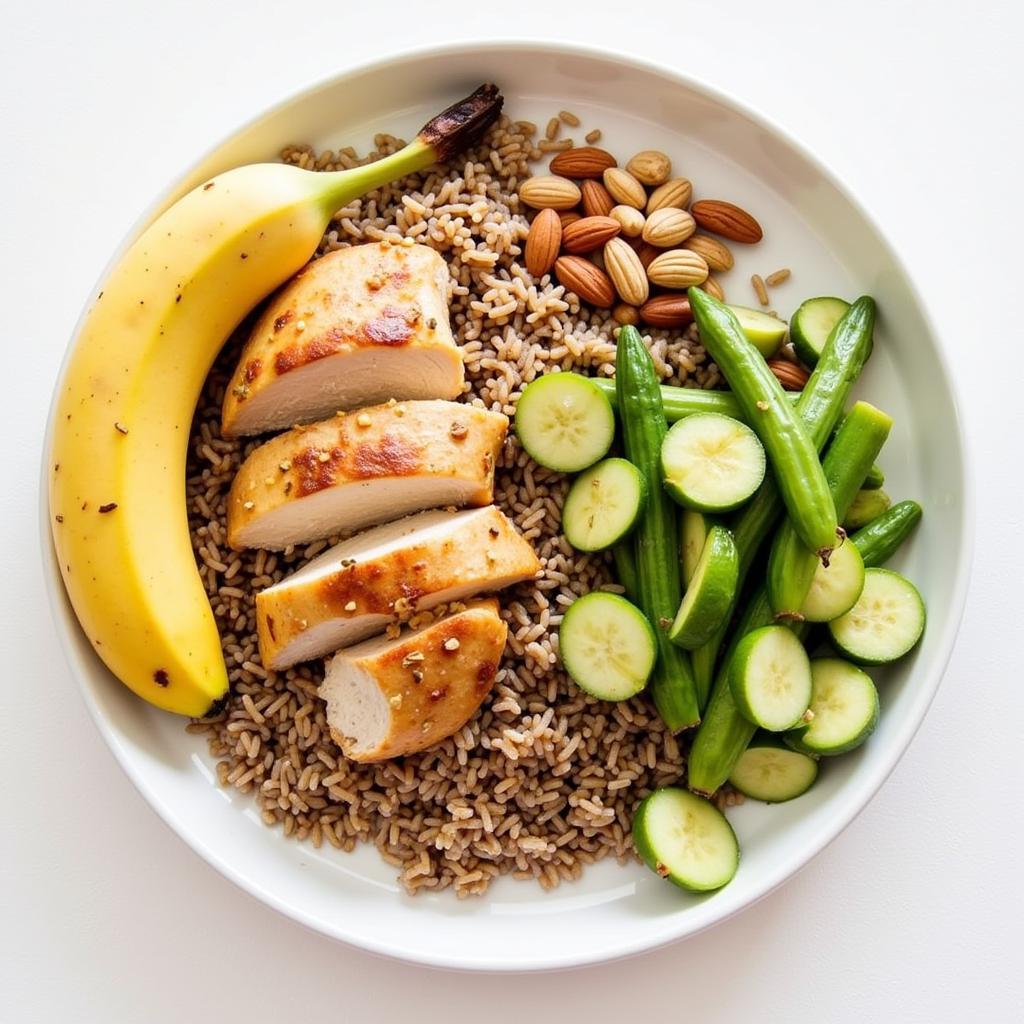The Ultimate Guide to a U23 Football Player’s Diet
October 13, 2024As a professional footballer, I know firsthand the importance of a proper diet for optimal performance on the field. When you’re playing at a high level, especially as a U23 player striving to reach the top, your body needs the right fuel to train hard, recover effectively, and perform at your best. This guide delves into the essential aspects of a U23 football player’s diet, providing valuable insights to help you maximize your potential.
Understanding the Nutritional Needs of a U23 Football Player
Before we dive into specific food choices, it’s crucial to understand the unique nutritional needs of a U23 football player. Your body demands a higher calorie intake than an average person due to the intense physical demands of training and matches. Additionally, the ideal macronutrient ratio for a footballer consists of:
- Carbohydrates: 55-65% of your daily calorie intake
- Protein: 15-20% of your daily calorie intake
- Fats: 20-30% of your daily calorie intake
 A U23 football player participating in an intense training session
A U23 football player participating in an intense training session
Carbohydrates: The Primary Fuel Source
Carbohydrates are your body’s primary energy source, providing the fuel needed for those explosive sprints and powerful shots. Prioritizing complex carbohydrates over simple sugars is key. Opt for whole grains like brown rice, quinoa, and whole-wheat bread, as well as fruits and vegetables for sustained energy release throughout the day.
Protein: Building and Repairing Muscles
Protein plays a vital role in muscle growth and repair, essential for recovering after strenuous training sessions and preventing injuries. Lean protein sources like chicken, fish, beans, lentils, and tofu should be staples in your diet.
Fats: Don’t Fear the Healthy Kind
Healthy fats are crucial for hormone production, cell function, and overall well-being. Include sources like avocados, nuts, seeds, and olive oil in moderation for a balanced diet.
Meal Planning for Peak Performance
Now that we’ve covered the basics, let’s delve into practical meal planning tips for a U23 football player:
Pre-Training Fuel:
- 1-2 hours before training: Opt for a light meal or snack rich in carbohydrates and moderate in protein, such as a banana with peanut butter or a small bowl of oatmeal with berries.
- 30 minutes before training: If needed, have a small, easily digestible snack like a piece of fruit or a rice cake with a bit of honey.
 Examples of healthy pre-training meals for a U23 football player
Examples of healthy pre-training meals for a U23 football player
Post-Training Recovery:
- Within 30 minutes of training: Consuming a combination of carbohydrates and protein within this crucial window aids muscle recovery and replenishes glycogen stores. Consider a protein shake with a banana or a chicken salad sandwich on whole-wheat bread.
- 1-2 hours after training: Follow up with a balanced meal rich in both carbohydrates and protein, like salmon with sweet potato and asparagus.
Hydration is Key
Don’t underestimate the power of proper hydration. Dehydration can significantly impact performance, so aim to drink water consistently throughout the day, especially before, during, and after training sessions and matches.
Supplements: A Personal Decision
While a balanced diet should provide most nutrients, some U23 players may consider supplements after consulting with a qualified sports nutritionist. Common supplements include:
- Creatine: Can enhance short-burst power and strength.
- Whey protein: Convenient for boosting protein intake, particularly post-workout.
- Fish oil: Provides omega-3 fatty acids, beneficial for heart and brain health.
The Importance of Consistency and Individualization
Remember, there’s no one-size-fits-all approach to a U23 football player’s diet. It’s crucial to listen to your body, experiment, and find what works best for you. Consistency is key, so establish a regular eating pattern that aligns with your training schedule and supports your individual needs and goals.
“A well-fueled body is a powerful weapon on the pitch,” says renowned sports nutritionist Dr. Emily Carter. “By prioritizing a balanced diet rich in carbohydrates, protein, and healthy fats, U23 players can gain a competitive edge and unlock their full potential.”
Conclusion
Fueling your body properly is just as crucial as any training drill or tactical session. By following the guidelines outlined in this guide and working with a qualified sports nutritionist, you can optimize your diet to enhance your performance, support recovery, and achieve your goals on your journey to becoming a top-level footballer.
FAQ
- What should I eat before a match? Aim for a light, carbohydrate-rich meal 2-3 hours before kickoff, such as pasta with tomato sauce or chicken and rice. Avoid fatty or greasy foods that can cause digestive discomfort.
- How can I stay hydrated during a match? Drink plenty of water or a sports drink containing electrolytes before, during, and after the match. Take advantage of water breaks and listen to your body’s thirst signals.
- Is it necessary to count calories? While not always essential, tracking your calorie intake for a short period can help you understand your energy requirements and make adjustments as needed.
- Are cheat meals allowed? Occasional indulgences are fine in moderation but shouldn’t become a regular habit. Focus on building a sustainable and enjoyable eating pattern.
- How can I stay motivated to eat healthily? Find meals you genuinely enjoy, prepare meals in advance when possible, and surround yourself with supportive teammates and coaches who prioritize healthy habits.
For further information and personalized guidance on your nutrition plan, please reach out to us. Contact us at 0396443476 or email us at [email protected]. You can also visit us at our office at 23 Tháng 3, Đắk Nia, Gia Nghĩa, Đắk Nông, Việt Nam. Our team is available 24/7 to assist you.
We have other helpful articles available on our website about training regimens, injury prevention, and other aspects of football development. Don’t hesitate to explore and learn more!